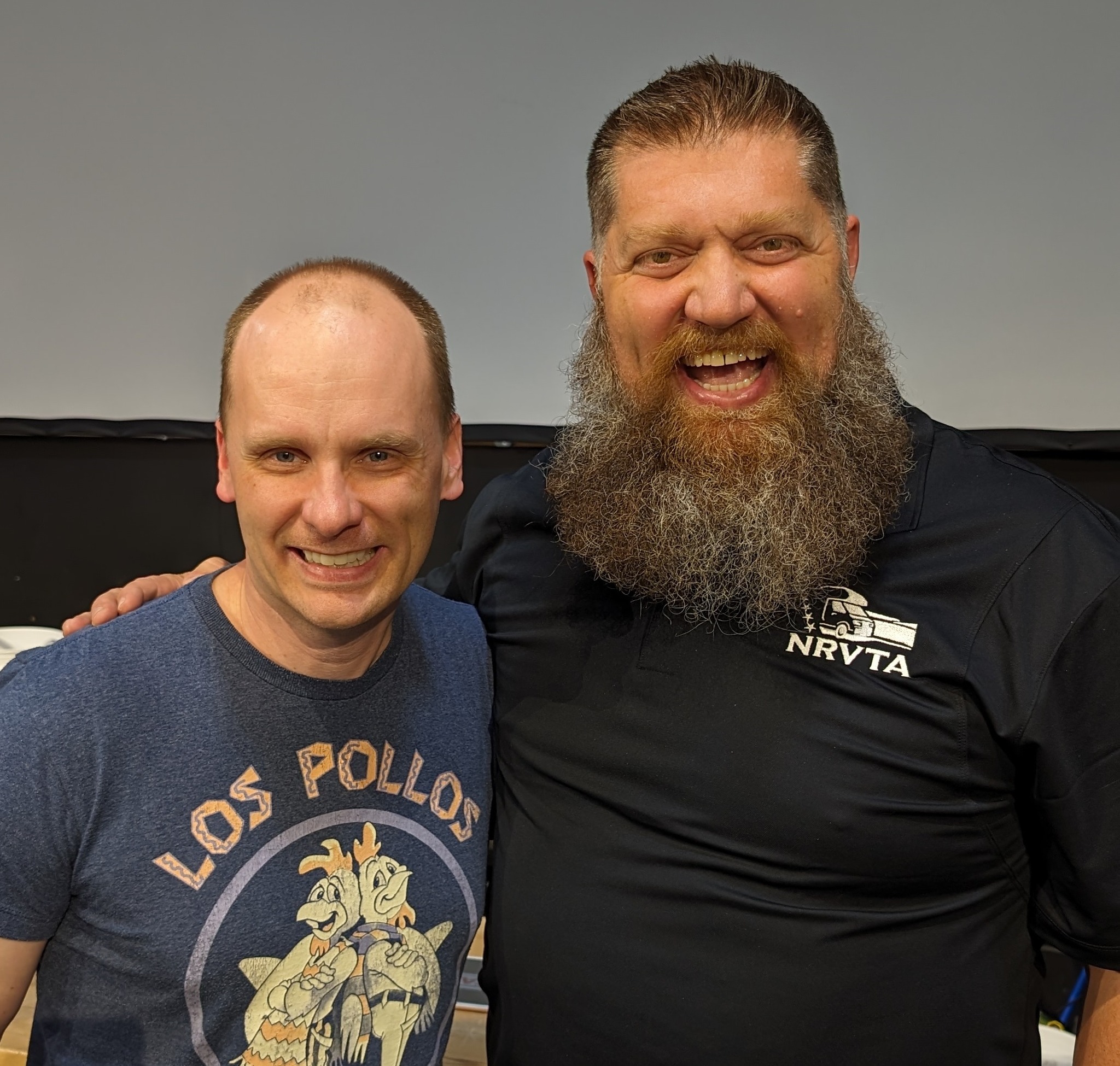In February, I went to the National RV Training Academy (NRVTA) in Athens, Texas where I took the RV Fundamentals Training class (RVTF 200).

The NRVTA is located in Athens, Texas which is about 70 miles southeast of Dallas and is accredited by the Texas Workforce Commission as a Licensed Career and School College. The RVTF 200 class consists of 5 days of training. The time is divided into required classroom time (28 hours), required lab time (12 hours) and optional classroom time (8 hours).
I flew from Portland to Dallas, got a rental car, and stayed in one of the tiny homes on the campus of the NRVTA. Almost all of the students stayed on-campus, and the vast majority of students were staying in their own RVs. The tiny home was great and had a full residential kitchen.
Because the NRVTA is an accredited college, you have to go through a full enrollment process including proving that you have a high school diploma. This also makes it eligible for things such as funding via the GI bill. Due to this, there were a significant number of veterans in my class.
My class consisted of about 80 students, 1 main classroom instructor (Todd Henson https://www.youtube.com/@NationalRVTrainingAcademy), and 6 teaching assistants. The class was about 85% male and 15% female. Approximately 80% of the students were taking this class with a goal to become technicians and / or inspectors and about 20% (like me) were owners taking the class for their own education. We had a student from Brazil, one from England, and one from Canada.
In order to be listed as a registered RV technician by the NRVTA, you have to complete 1 week of training, then pay $99 and pass a test. I did not pay the $99 for the test so I am not listed as a registered RV technician.
In order to be listed as a certified RV Technician by the NRVTA, you have to complete the same 1st week, and then 4 additional weeks of training and pass a test. There is another pathway to become a certified RV Inspector. All told, if you want to be a certified RV Tech and a certified RV inspector, it takes 8 weeks of training.
In terms of the actual training, we received a classroom training regarding RV electrical, RV Propane and RV water systems. We received additional specific training regarding water heaters, air conditioning, furnaces and refrigerators.
Our hands-on training included detailed usage of multi-meters including Volts AC, Volts DC, Amps AC, Amps DC, Ohms, and capacitance. We had a lab all about maintaining and troubleshooting the air conditioner, troubleshooting absorption refrigerators, usage of DC batteries and inverters, and all about RV water systems. We spent time developing battery banks in Series, Parallel, and Series-Parallel configurations. We did hands on time with troubleshooting the water heater and furnace. We had a lab about bearings and axels. We learned how to perform a Hot Skin Test. We learned all about the “best” lubricants, sealants and protectants. Finally, we learned how to perform a Time Pressure Drop test to look for a propane leak.
In this 1-week class, we learned how everything works, how to troubleshoot problems, and how to maintain the RV, but we did not spend hands-on time actually fixing things that were broken. For example, I now feel that I have the skills to diagnose a broken air conditioner capacitor or water heater heating element, but I did not get to actually diagnose a broken part, remove it, and replace it with a working part. Ultimately, the students who stay on for additional training spend an entire week doing actual repair of air conditioners, a week of actual repair of refrigerators, a week of water heaters and furnaces, and a week on exterior systems.
We did not spend any time learning about how to build or maintain generators or solar systems as NRVTA offers additional classes specifically for this purpose. We also did not learn about towing, tires, suspension, awnings, windows, or floors.
It sounds like fixing broken appliances (especially furnaces and air conditioners) are the biggest services performed by RV technicians.
One evening, there was an optional session given by Sue Rasmussen “The Queen of Poo” of https://www.royalflushrv.com/. Sue spent an hour talking about best practices for maintaining black and grey tanks. Sue is a service tech who specializes in tank cleaning and she has a very impressive show-and-tell bucket of things she has removed from RV holding tanks. For what it’s worth, she recommends TankTechsRx Probiotic as the best tank treatment. https://www.amazon.com/TankTechsRx…/dp/B09NP5FSDW/
Overall, I learned a lot and I’d consider it to be worthwhile for other owners to take this class. The main teacher (Todd Henson) is engaging and knowledgeable and keeps class fun even as multiple members of the class are bored because they already know what he is teaching and multiple other members are confused as they came into class with no prior knowledge. I enjoyed my experience, found it to be useful, and I would recommend this to others.


